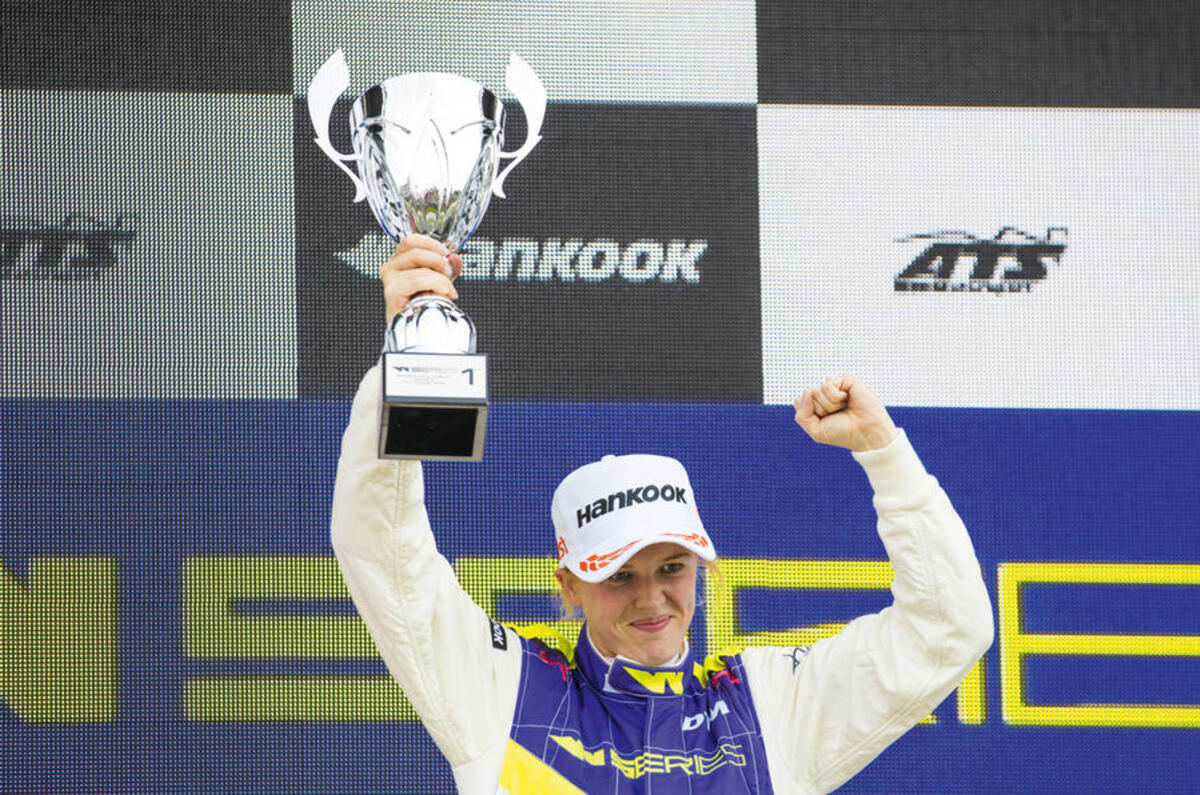Manual labour is all very well, but it won’t earn you $125,000 (£95,000). Alice Powell managed both last year, working for her dad’s building business and then returning to racing after the best part of five years out to finish third in the inaugural W Series for female racers. That earned her a hefty cheque. But now she returns for season two and wants what champion Jamie Chadwick just got: $500,000 (£380,000).
Powell’s single-seater career petered out in 2014 despite her showing promise in GP3 (now FIA F3). Why? Money, of course. Why else? Since then she’s mostly coached young racers as well as putting in shifts for Dad. “I just do the rubbish jobs, fetching and carrying,” she says. “It’s quite good for fitness actually.”
At 26, the old Formula 1 dream will be a stretch, but Powell has a vast amount of experience to draw on that dates back to junior karting. A professional career in GTs or touring cars should now be within her reach – thanks to the W Series lifeline.
“I totally see the different sides of the argument, that people say it’s segregation,” she says of the series, which received a hail of criticism when it was first launched. “But I saw it mainly as an opportunity to get back out and race again.”
Before W Series, had she given up? “I wouldn’t say that, but year on year the hope gets less,” she says. “If you look at FIA F3 budgets, it’s a lot more expensive than when I was racing five years ago. It’s hard for anyone. For W Series, you don’t have to bring any sponsorship. It’s fantastic.”
She was “rusty” in the early races of the six-round series in 2019. But by the Brands Hatch finale in August, she’d “blown away the cobwebs” and scored an emphatic first victory in front of her home crowd. The atmosphere that day was terrific, with a big crowd turning out – and not necessarily for the headline DTM: “The queues when we did the autograph signing were ridiculous, and there were quite a few young girls, which was great to see.”
Gender in sport is in the spotlight right now, so has motorsport got a problem? “Not as such,” she says. “I started racing karts in 2001 and you would never see a female at a track. Now there’s at least one female in every class. It’s getting a lot better. Younger girls just need a role model.”
Given how she’s grafted, Powell more than fits that bill. The old man’s fetching and carrying might soon have to wait.
READ MORE
Racing lines: Le Mans '66's greatest triumph? Getting made
Racing lines: Why 2020 will be a gold year for motorsport
Racing lines: Bloodhound LSR run fires rockets and hearts




Add your comment